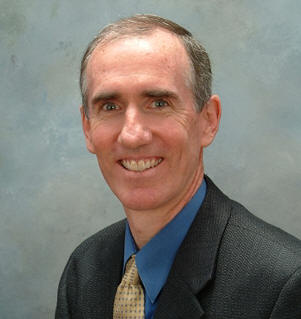System Maintenance occurs every Friday.
Semiconductor and integrated circuit developments continue to proceed at an incredible pace. The industry as a whole has gotten to this point of incredible complexity through the process of countless breakthroughs and developments in wafer fab processing. Today's wafer fab contains some of the most complex and intricate procedures ever developed by mankind. Wafer Fab Processing is a 4-day course that offers an in-depth look into the semiconductor manufacturing process, and the individual processing technologies required to make them. We place special emphasis on the basics surrounding each technique, and we delve into the current issues related to manufacturing the next generation devices. This course is a must for every manager, engineer and technician working in the semiconductor industry, using semiconductor components or supplying tools to the industry.
By focusing on the basics of each processing step and the issues surrounding them, participants will learn why certain techniques are preferred over others. Our instructors work hard to explain how semiconductor processing works without delving heavily into the complex physics and mathematical expressions that normally accompany this discipline.
February 23-26, 2026 | Munich, Germany
(Price available until Mon. Feb. 2)
$2,195
$2,095
Please note: If you or your company plan to pay by wire transfer, you will be charged a wire transfer fee of USD 45.00.
Please email the printable registration form for public courses to us at the email address on the form to complete your order.
If you have any questions concerning this course, please contact us at info@semitracks.com.
If a course is canceled, refunds are limited to course registration fees. Registration within 21 days of the course is subject to $100 surcharge.
Participants will learn basic, but powerful, aspects about the semiconductor industry. This skill-building series is divided into three segments:
This course is a must for every manager, engineer, and technician working in the semiconductor industry, using semiconductor components, or supplying tools to the industry. Our instructors work hard to explain how semiconductor wafer processing works without delving heavily into the complex physics and mathematical expressions that normally accompany this discipline.
Our courses are dynamic. We use a combination of instruction by lecture, problem solving, and question/answer sessions to give you the tools you need to excel. From the very first moments of the seminar until the last sentence of the training, the driving instructional factor is application. The course notes offer hundreds of pages of reference material that you can apply during your daily activities. Additionally, the opportunity to work through sample problems under the guidance of an expert instructor allows you to cement the concepts you learn through hands-on implementation.
Our instructors are internationally recognized experts. Our instructors have years of current and relevant experience in their fields. They're focused on answering your questions and teaching you what you need to know.

Christopher Henderson received his B.S. in Physics from the New Mexico Institute of Mining and Technology and his M.S.E.E. from the University of New Mexico. Chris is the President and one of the founders of Semitracks Inc., a United States-based company that provides education and semiconductor training to the electronics industry.
From 1988 to 2004, Chris worked at Sandia National Laboratories, where he was a Principal Member of Technical Staff in the Failure Analysis Department and Microsystems Partnerships Department. His job responsibilities have included failure and yield analysis of components fabricated at Sandia's Microelectronics Development Laboratory, research into the electrical behavior of defects, and consulting on microelectronics issues for the DoD. He has published over 20 papers at various conferences in semiconductor processing, reliability, failure analysis, and test. He has received two R&D 100 awards and two best paper awards. Prior to working at Sandia, Chris worked for Honeywell, BF Goodrich Aerospace, and Intel. Chris is a member of IEEE and EDFAS (the Electron Device Failure Analysis Society).
At Semitracks, Chris teaches courses on failure and yield analysis, semiconductor reliability, and other aspects of semiconductor technology.